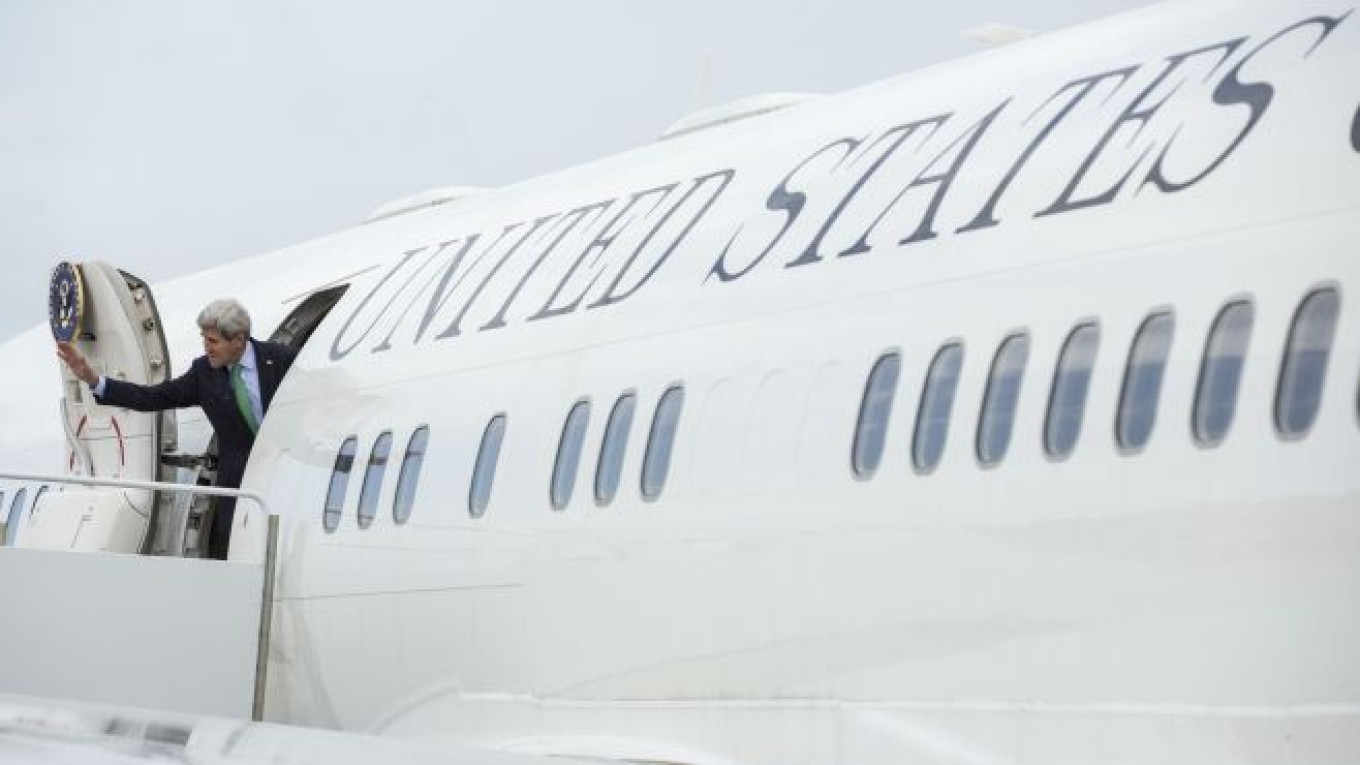On June 5, U.S. Secretary of Defense Ash Carter met with U.S. diplomatic and military leaders in Stuttgart, Germany to review America's response to Russian aggression in Crimea and Ukraine. His review of strategy follows a May 12 meeting by U.S. Secretary of State John Kerry with President Vladimir Putin in Sochi. After this visit, is the U.S.-Russian relationship set to improve or get worse?
It's going to get worse. Bilateral relations are in free fall, and attempts to change that belie the gravitational forces taking it down. In the next decade, we will look back on the Obama-Putin spat as "the good old days."
Americans forget that in the 1990s, Russian President Boris Yeltsin was already railing against unipolar politics. During those years though, security elites in the U.S. and Russia still debated whether Russia could be integrated into the West.
For leaders in Moscow the debate ended in 1999 when the U.S. and NATO operated outside their borders to bomb Yugoslavia over Kosovo. For the American security establishment, it was the annexation of Crimea that provided its "Kosovo moment," which ended the debate in Washington over integration. Now both countries base their relationship on deterrence and not cooperation.
Today we have entered a period of brinksmanship in Eastern Europe. The United States deploys troops on a rotating basis in the Baltic states along Russia's border and has reintroduced American tanks into Europe.
Russia has increased ground forces along its side of the land border. The United States and NATO have added air patrols over the Baltic states and are proceeding with planned missile defenses in Europe. Russia has increased flights by nuclear "Bear" bombers along NATO boundaries and air defense fighters along its own border. In addition to all this, Russia continues to support the separatists in eastern Ukraine. Many NATO allies are increasing their defense spending. Sweden and Finland are openly contemplating NATO membership.
In a March 2015 meeting of the Elbe Group, which comprises former leaders of American and Russian intelligence and military organizations, senior retired Russian generals told their American counterparts that these kinds of steps by the U.S. and West are threats, which "Russia will not tolerate." Russia's new military doctrine, published in December 2014, backs them up by declaring that the buildup of NATO and its exercises in neighboring countries are threats to Russian security.
All of this might be reversible except that political trends in the two countries make it almost impossible. According to the Russian pollster the Levada Center, over 80 percent of Russians approve of what Putin is doing.
Confronted with a more active NATO and an awakened Russian nationalism, Putin or his successor may have to be even more nationalistic in the future.
How do politics in the United States compare? There is no one, from the political left or right, who champions a platform to improve relations with the Russians. Democratic presidential candidate Hillary Clinton, who as secretary of state attempted to "reset" relations with Russia in 2009, has since compared Putin to Hitler.
Even cooperation on issues like Iran cannot save the broader relationship. American politics will remain firmly anti-Russian through the next election and well into the new president's first term.
Going forward, American and Russian diplomats and military leaders must be careful in their words and actions to ensure that the fine line between deterrence and conflict is carefully and clearly maintained.
Retired Brigadier General Kevin Ryan is director of Defense and Intelligence Projects at Harvard Kennedy School's Belfer Center. He served as U.S. defense attache to Moscow from 2001 to 2003.
A Message from The Moscow Times:
Dear readers,
We are facing unprecedented challenges. Russia's Prosecutor General's Office has designated The Moscow Times as an "undesirable" organization, criminalizing our work and putting our staff at risk of prosecution. This follows our earlier unjust labeling as a "foreign agent."
These actions are direct attempts to silence independent journalism in Russia. The authorities claim our work "discredits the decisions of the Russian leadership." We see things differently: we strive to provide accurate, unbiased reporting on Russia.
We, the journalists of The Moscow Times, refuse to be silenced. But to continue our work, we need your help.
Your support, no matter how small, makes a world of difference. If you can, please support us monthly starting from just $2. It's quick to set up, and every contribution makes a significant impact.
By supporting The Moscow Times, you're defending open, independent journalism in the face of repression. Thank you for standing with us.
Remind me later.


